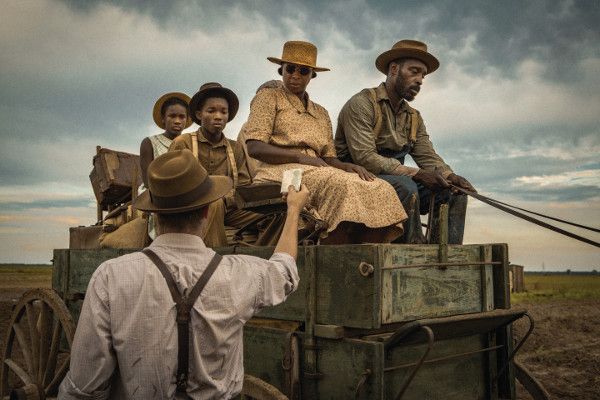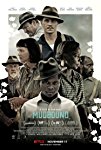Eye For Film >> Movies >> Mudbound (2017) Film Review
Mudbound
Reviewed by: Jennie Kermode

Except where they deal directly with immigration, films about 20th Century US history tend to be insular. There's little enough dealing honestly with slavery and the Jim Crow period as it is, and one subject that has barely been touched upon is the impact of the Second World War on race relations. Mudbound, then, is a welcome attempt to fill the gap, and if it ends up playing things just a little too safe to achieve what it might, it still contains a great deal of impressive work.
The story, which is rambling in nature like many a good Southern yarn, follows two families living in rural Mississippi: the white McAllans and the black Jacksons. After the end of slavery they all have ideas about doing things differently, and the McAllans are not illiberal by the standards of their time, but neither do they seem fully able to comprehend the humanity of the Jacksons. They also have a coddled aspect to them, an unquestioning lack of faith in their own abilities despite their certainty of superiority, with economic disparity enabling them to buy the services that once they would simply have demanded, and the exchange of money legitimising the process in their minds. So Florence Jackson (Mary J Blige) ends up doing what she promised herself she would never do and leaving her own family behind to care for someone else's, whilst Laura (Carey Mulligan) sees this as the natural way of things.

From outside the bubble of the South, things look different. When sons Jamie McAllan (Garrett Hedlund) and Ronsel Jackson (Jason Mitchell) go oversea to fight the Nazis, they are permanently changed, and not just by the shock of armed conflict. Often we talk of conflict in terms of innocence lost but here, perhaps, that's a good thing. On returning, neither of them can reconcile himself to the delusions of his youth, and both struggle to fit in with local etiquette. The dangers of this for Ronsel are obvious. Friction is generated by a seemingly trivial thing, but of course it's really about resentment of his clear awareness of himself as the equal of white men, and a fear that such ideas could be infectious.
Where the film does something more unusual is in its telling of Jamie's story, exploring the way that his desire to help and keep company with Ronsel - as soldiers who have seen combat often reach out to each other because no-one else gets it - places him, too, at risk. Though this risks taking the story of America's struggle with racism and making it all about a heroic white man, it's important to look at how a shift in white consciousness took place and made way for change, and this part of the narrative doesn't squeeze out Ronsel's story, which explores the tension between the politics of resistance and of appeasement.
Both Hedlund and Mitchell deliver strong performances and balance well against one another. The modern perspective of these two characters makes it easy for audiences to relate to them and immediately creates a bias against the attitudes of the past, with their parents seeming like survivors from a much more distant age. The past is also positioned as rural. In scenes set in Europe we see not just trenches but also cities; everywhere, throngs of people, strangers interacting, a life in which the exchange and evolution of ideas is constant. It is as if the very mud of Mississippi is ensnaring its inhabitants, slowing social as well as physical progress.
Ultimately, Mudbound sets aside these interesting ideas to tie up its story in a suitably ugly yet conventional way which robs it of the potential for less obvious character development. It's a disappointing end to an important if somewhat underambitious film, but it still succeeds in providing emotional resolution that reminds viewers why all this matters.
Reviewed on: 30 Nov 2017
















